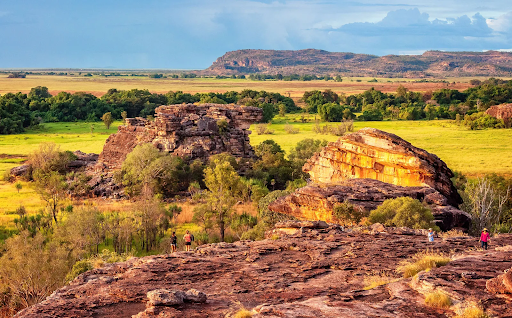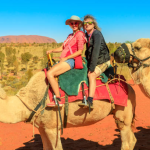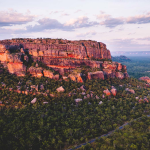A journey into Australia is incomplete without understanding the profound cultural impact of its original inhabitants, the Aboriginal people. This article serves as a guide to exploring the remarkable Aboriginal cultural experiences available to visitors, with a special focus on how one can immerse themselves in learning about the indigenous heritage through various interactive tours, festivals, and museums. From 3-day Kakadu tours from Darwin that offer a deep dive into the heartland of Aboriginal history to vibrant cultural festivals, Australia’s Aboriginal experiences are as diverse and enriching as the landscape itself.
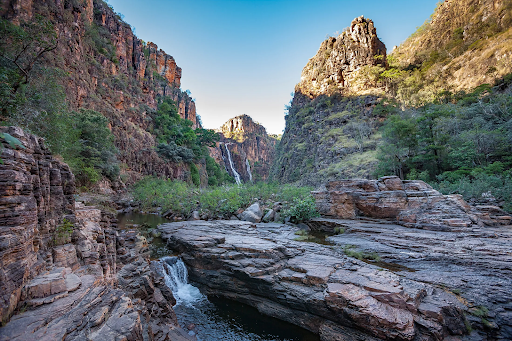
The Roots of Aboriginal Culture
The Aboriginal peoples of Australia boast a history and culture that dates back tens of thousands of years before European settlement. Their stories, customs, and spiritual beliefs are deeply entwined with the Australian continent. Understanding this connection begins with the Dreamtime stories, which are the foundation of Aboriginal spirituality and describe the creation of the world and its creatures.
The role that Elders play is crucial, acting as the custodians of cultural knowledge, passing traditions, stories, and wisdom to younger generations. They ensure the preservation of language, ceremonies, and the laws of the land, making them respected leaders in their communities. Traditional teachings from Elders are not just historical accounts, but living, breathing instructions on how to maintain the balance of life.
Engaging with Aboriginal Culture Today
Thankfully, Australia offers numerous opportunities for visitors to engage with Aboriginal culture in a respectful and authentic manner. Aboriginal-led tours provide insight into ancient traditions and stories that have been preserved over millennia. These experiences vary by region and are reflective of the diverse practices, languages, and cultural artefacts that are unique to the local area.
From rock art in the Kimberley to bush tucker experiences in the Northern Territory, visitors can gain a better understanding of the traditional lifestyles and cultural expressions of Aboriginal peoples. A highlight among these is the 3-day Kakadu tours from Darwin, providing an immersive experience in one of Australia’s most significant cultural landscapes.
Cultural Festivals and Events
Cultural festivals and events provide a spectacular showcase of Aboriginal customs and community life. Festivals such as the National Aborigines and Islanders Day Observance Committee (NAIDOC) Week, and the Laura Aboriginal Dance Festival offer vibrant insights into the storytelling, dance, and music that play a central role in Aboriginal culture.
These events not only celebrate the enduring heritage of Aboriginal Australians but also serve as an important bridge between indigenous and non-indigenous people, fostering a shared respect and understanding for the oldest living culture on earth.
| Festival | Location | Key Highlights |
|---|---|---|
| NAIDOC Week | Nationwide | Cultural Celebrations, Community Events |
| Laura Aboriginal Dance Festival | Queensland | Traditional Dance Performances |
| Barunga Festival | Northern Territory | Indigenous Music, Sport, Culture |
The table above gives a snapshot of the major festivals that celebrate the Aboriginal way of life, which are perfect platforms for visitors to witness the dynamic and living culture first-hand.
Museums and Cultural Centers Showcasing Aboriginal Heritage
Museums and cultural centers play a pivotal role in the preservation and exhibition of Aboriginal heritage. The Australian Museum in Sydney, the National Gallery of Australia in Canberra, and Melbourne’s Koorie Heritage Trust are just a few of the institutions that offer rich insights into. Aboriginal traditions, art, and history.
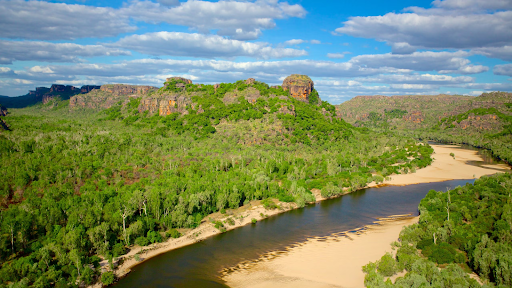
These places are sanctuaries of learning where artifacts, photographs, and contemporary art pieces tell a story of a resilient culture that has survived and adapted through immense changes over thousands of years.
Ethical Tourism and Supporting the Aboriginal Community
As tourism to Aboriginal cultural sites increases, it becomes vital to approach these experiences with a focus on ethical and responsible tourism. Ethical tourism means engaging with experiences that are not only informative and transformative but also actively support the livelihoods of Aboriginal people and the maintenance of their cultural sites.
This includes participating in tours and events that give back to the community, respecting cultural guidelines, and supporting Aboriginal-owned businesses. By doing this, visitors help ensure the long-term viability of Aboriginal cultural preservation.
Practical Tips for Immersing Yourself in Aboriginal Culture
To truly immerse yourself in Aboriginal culture, it is important to approach each experience with an open mind and a respectful heart. Here are some practical tips to help you on this cultural journey:
- Seek out Aboriginal-led tours to gain authentic insights from the traditional custodians of the land.
- Learn a few words in the local Aboriginal language as a sign of respect and interest in the culture.
Respect and engagement with Aboriginal culture go hand in hand, and the above list is just the beginning of the practices one can adopt to ensure a culturally sensitive and enriching experience.
Conclusion
The diverse tapestry of Aboriginal culture in Australia is as old as the land itself and offers a unique perspective into the history, spirituality, and identity of the continent. Visitors both from Australia and around the globe have the incredible opportunity to explore and learn from the world’s oldest continuous culture. Let’s honor this privilege by engaging with these experiences responsibly, ethically, and with the utmost respect.
Frequently Asked Questions
Q1: What is the best way to ensure my engagement with Aboriginal cultural experiences is respectful?
A1: Engage with tours and experiences led by Aboriginal guides, follow their instructions on how to behave at cultural sites, and always ask permission before taking photos of people or sensitive sites.
Q2: Can visitors participate in traditional Aboriginal ceremonies?
A2: Participation in traditional ceremonies is typically by invitation only and usually reserved for those who have developed a relationship with the community or are part of the community. Always respect the privacy and sacred nature of such ceremonies.
Q3: How can I learn more about Dreamtime stories?
A3: Dreamtime stories can be explored through Aboriginal cultural centers, museums, and storytelling sessions with Aboriginal guides who are authorized to share these tales.
Q4: Why is it important to support Aboriginal-owned businesses when using their cultural services?
A4: Supporting Aboriginal-owned businesses ensures that the profits are directly contributing to the community’s wellbeing, and helps in the preservation and continuation of their cultural heritage.
Q5: Are there any specific Aboriginal cultural experiences you would recommend for first-time visitors to Australia?
A5: First-time visitors might consider engaging in Aboriginal-led walking tours, such as those offered around Uluru or the Mossman Gorge, which provide an excellent introduction to Aboriginal culture and spiritual connection to the land.
